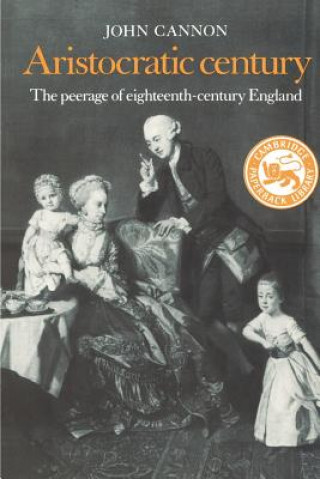
Kód: 02027819
Aristocratic Century
Autor John Cannon
Since the work of Butterfield and Namier in the 1930s, it has commonly been said that eighteenth-century England appears atomised, left with no overall interpretation. Subsequent work on religious differences and on party strife s ... celý popis
- Jazyk:
 Angličtina
Angličtina - Vazba: Brožovaná
- Počet stran: 204
Nakladatelství: Cambridge University Press, 1987
- Více informací o knize

Mohlo by se vám také líbit
Dárkový poukaz: Radost zaručena
- Darujte poukaz v libovolné hodnotě a my se postaráme o zbytek.
- Poukaz se vztahuje na celou naši nabídku.
- Elektronický poukaz vytisknete z e-mailu a můžete ihned darovat.
- Platnost poukazu je 12 měsíců od data vystavení.
Více informací o knize Aristocratic Century
Nákupem získáte 121 bodů
 Anotace knihy
Anotace knihy
Since the work of Butterfield and Namier in the 1930s, it has commonly been said that eighteenth-century England appears atomised, left with no overall interpretation. Subsequent work on religious differences and on party strife served to reinforce the image of a divided society, and in the last ten years historians of the poor and unprivileged have suggested that beneath the surface lurked substantial popular discontent. Professor Cannon uses his 1982 Wiles Lecture to offer a different interpretation - that the widespread acceptance of aristocratic values and aristocratic leadership gave a remarkable intellectual, political and social coherence to the century. He traces the recovery made by the aristocracy from its decade in 1649 when the House of Lords was abolished as useless and dangerous. After the Glorious Revolution of 1688, the peerage re-established its hold on government and society. Professor Cannon is forced to challenge some of the most cherished beliefs of English historiography - that Hanoverian society, at its top level, was an open elite, continually replenished by vigorous recruits from other groups and classes. He suggests that, on the contrary, in some respects the English peerage was more exclusive than many of its continental counterparts and that the openness was a myth which itself served a potent political purpose. Of the prospering burgeoisie, he argues that the remarkable thing was not their assertiveness but their long acquiescence in patrician rule, and he poses the paradox of a country increasingly dominated by a landed aristocracy giving birth to the first industrial revolution. His final chapter discusses the ideological under-pinning which made aristocratic supremacy acceptable for so long, and the emergence of those forces and ideals which were ultimately to replace it.
 Parametry knihy
Parametry knihy
Zařazení knihy Knihy v angličtině Humanities History History: earliest times to present day
1205 Kč
- Plný název: Aristocratic Century
- Podnázev: The Peerage of Eighteenth-Century England
- Autor: John Cannon
- Jazyk:
 Angličtina
Angličtina - Vazba: Brožovaná
- Počet stran: 204
- EAN: 9780521335669
- ISBN: 0521335663
- ID: 02027819
- Nakladatelství: Cambridge University Press
- Hmotnost: 314 g
- Rozměry: 153 × 228 × 19 mm
- Datum vydání: 07. May 1987
Oblíbené z jiného soudku
-

Histories
136 Kč -
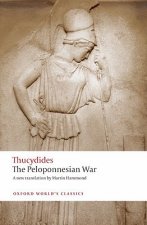
Peloponnesian War
309 Kč -

Rise and Fall of Ancient Egypt
433 Kč -

Spartans
334 Kč -

Making Medieval Manuscripts
431 Kč -

Shake Hands With The Devil
347 Kč -

Fall of Yugoslavia
283 Kč -

Caesar
433 Kč -

Forgotten Peoples of the Ancient World
656 Kč -

Yalta
366 Kč -

Exodus
425 Kč -

Dacia
1143 Kč -

F-104 Starfighter Units in Combat
483 Kč -

Salem Witch Trials
506 Kč -

Alexander the Great
470 Kč -
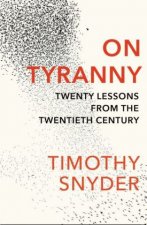
On Tyranny
269 Kč -
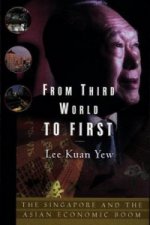
From Third World to First
376 Kč -

King Leopold's Ghost
283 Kč -

Chernobyl Prayer
269 Kč -

Who Paid The Piper?
358 Kč -
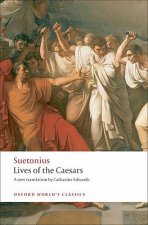
Lives of the Caesars
269 Kč -

Oxford History of Poland-Lithuania
1578 Kč -

The Origins of Totalitarianism
269 Kč -

Guns, Germs, and Steel
280 Kč -

Illustrated Encyclopedia of Uniforms of World War I
517 Kč -

Postwar
435 Kč -

Meditations
214 Kč -

Chickenhawk
283 Kč -

Underground
288 Kč -

Creation of Patriarchy
648 Kč -

Complete Roman Army
508 Kč -
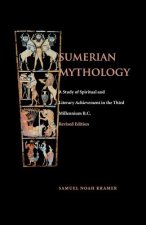
Sumerian Mythology
601 Kč -

Age Of Capital
383 Kč -

Age Of Extremes
445 Kč -

America's Secret Establishment
400 Kč -

Key of Solomon the King (Clavicula Salomonis)
257 Kč -

Travels of Ibn Battutah
283 Kč -

Yoga Body
457 Kč -

1913
298 Kč -

Armies of the Late Roman Empire AD 284 to 476
724 Kč -

Truman
454 Kč -

Anunnaki Homeworld
425 Kč -

Medusa
494 Kč -

Caligula
85 Kč -
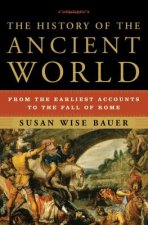
History of the Ancient World
765 Kč -

Thank You for Being Late
337 Kč -

Pakistan: A Hard Country
435 Kč -

Infidel
283 Kč -

Your Money or Your Life - Economy & Religion in The Middle Ages
446 Kč
Osobní odběr Praha, Brno a 12903 dalších
Copyright ©2008-24 nejlevnejsi-knihy.cz Všechna práva vyhrazenaSoukromíCookies





 Vrácení do měsíce
Vrácení do měsíce 571 999 099 (8-15.30h)
571 999 099 (8-15.30h)